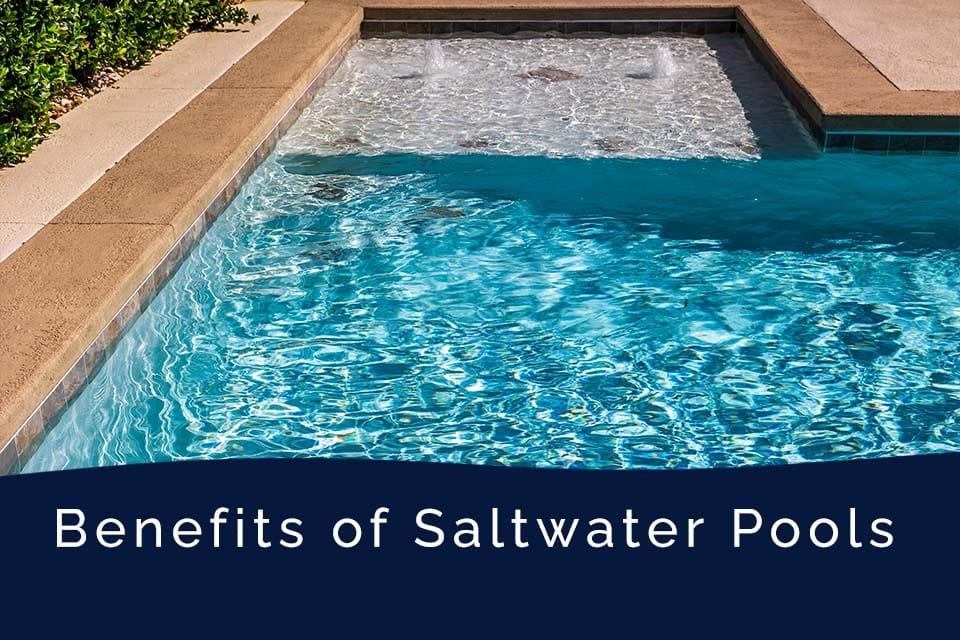
Protect Your Pool Investment with a High-Quality Winter Pool Cover
October 30, 2023
Swimming for Fitness: Turning Your Pool into a Personal Gym
October 31, 2023When it comes to pool ownership, one of the decisions you’ll have to make is whether to go for a traditional chlorine pool or a saltwater pool. Each option has its pros and cons, and choosing the right one for your home largely depends on your preferences and needs. In this blog post, we’ll delve into the benefits of saltwater pools and help you decide if it’s the right choice for your home.
Pros of Saltwater Pools:
- Lower Chemical Use: Saltwater pools use a salt chlorinator to convert the salt into chlorine. This means you’ll use fewer traditional pool chemicals, making maintenance easier and reducing potential skin and eye irritations.
- Softer Water: Saltwater pools have softer water due to the lower chlorine levels. This can make swimming more comfortable, and you won’t experience the harsh chemical smell associated with traditional pools.
- Cost-Efficient: While the initial setup cost is higher, saltwater pools can save you money in the long run. You won’t need to buy and store large quantities of chlorine, and the maintenance is often less time-consuming.
- Gentler on Skin and Eyes: The reduced chlorine levels in saltwater pools make them gentler on your skin, hair, and eyes. Swimmers are less likely to experience red, irritated eyes or dry, itchy skin.
- Eco-Friendly: Saltwater pools are considered more environmentally friendly since they use a natural chlorine production process. This reduces the need for chemical additives that can harm the environment.
Cons of Saltwater Pools:
- Higher Initial Cost: Installing a saltwater system can be more expensive than a traditional chlorine pool. However, the long-term savings may balance out this initial investment.
- Complex Maintenance: While saltwater pools require less maintenance than traditional pools, they are not maintenance-free. You’ll need to monitor salt levels, clean the cell, and balance other pool chemistry factors.
- Corrosion Risk: Saltwater can be corrosive to certain pool materials, like metal fixtures and some types of stone or concrete. Proper pool construction and materials can mitigate this issue.
- Environmental Impact: Disposing of saltwater can be an issue in some areas. Be sure to check local regulations and guidelines for saltwater disposal.
Saltwater pools offer numerous advantages, including reduced chemical use, softer water, cost-efficiency, and improved comfort for swimmers. However, they may not be suitable for everyone due to the higher initial cost and potential maintenance complexities. When deciding if a saltwater pool is right for your home, consider your budget, maintenance preferences, and environmental considerations. Careful research and consultation with a pool professional can help you make an informed decision that suits your needs and preferences.




